10 Interview Questions YOU Need to Ask
You have a hard copy of your CV neatly tucked into a plastic pocket, and your collared shirt or blouse is ironed. The time and date of the interview are saved and easily accessible on your phone. Finally, you run through a list of questions that you think they may ask you such as the quintessential “Where do you see yourself in 5 years?”
So, you’re ready to go, right? Well, so far you’ve done some important interview preparation. However, there is one more, incredibly valuable task to complete; a list of interview questions YOU want to ask the hiring manager or interviewer.
While you may be nervous in an interview, it’s easy to forget that you are a valuable candidate who would be an asset to any company. Not only will asking the right questions benefit you when it comes to decision-making, but it can also impress the interviewer and position you as a serious contender for the job.
We’ve come up with 10 interview questions YOU need to ask in an interview. Pick and choose the ones that are most relevant to you and feel right.
Interview Question #1 How will my performance be measured? Can you outline the employee review process?
Why this question is important: When you understand the way your performance will be evaluated, you will gain insight into their management style. Having a thorough understanding of the process can also help you excel in your job. Aside from that, the interviewer will be impressed that you are eager to learn more about this area.
Interview Question #2 What are your expectations of the chosen candidate in the first 6 months?
Why this question is important: This is the ideal question to gauge what they expect from you. It shows that you are eager to make a positive impact on the business and will help determine whether you have the right skill set or if you require additional training or understanding of the position to fulfil the role.
Interview Question #3 What are some challenges I may face in the first 6 months?
Why this question is important: Effective preparation is essential for a successful start in a new job. Anticipating potential challenges allows you to proactively devise solutions, showcasing your problem-solving skills. This approach offers insight into the potential areas of weakness within the company and presents an opportunity for you to determine whether you are prepared to tackle these challenges.
Interview Question #4 What do you like about working here?
Why this question is important: This one might catch them off guard! The hiring manager is likely not asked this question regularly. It may encourage them to steer from the mundane and offer something personal and real. Listen carefully, as their answer could be a red or green flag.
Interview Question #5 What is the work environment like?
Why this question is important: Understanding the working environment of a company can help you decide whether it is a good fit for you. Positive company culture is vital for an employee and knowing they fit with your values, work ethic and personality can help you decide if you see a future with them. It will also give you insight into the work-life balance and if there are other benefits available.
Interview Question #6 Who would I report to? Can you explain the chain of command?
Why this question is important: Answering this question can save you valuable time if they offer you the job. Understanding the reporting structure and hierarchy within the company can provide clarity when taking instructions. In conjunction with a well-defined job description, these factors are crucial in enabling you to perform at your best.
Interview Question #7 Are there opportunities to grow and progress?
Why this question is important: You don’t want to be stuck in a dead-end job with no room to grow. Establishing whether there is room to grow within the company, will allow you to determine if this is a long-term career or simply a stepping stone. A good company will want their employees to constantly better themselves and should see them as an asset.
Interview Question #8 Is there a high staff turnover?
Why this question is important: Unless it is a very junior position this should be a red flag! What is the reason behind the high turnover and how will this affect you in the long run? Could you be leaving a more secure job for something that may not last? Would you constantly be reporting to someone new or have to train people on an ongoing basis?
Interview Question #9 Is there anything you’d like me to clarify? What else do you need to know about me?
Why this question is important: This is another great way to show your interest in the position. It will allow the interviewer to clarify questions they may have or to fill in any gaps from previous questions. It may also give you an opportunity to elaborate on your skill set. This is your time to make a lasting impression in the interview.
Interview Question #10 How soon can I expect to hear from you?
Why this question is important: Similar to being asked about your current notice period, it’s beneficial to get an estimated timeline for the decision-making process of the role you’re applying for. Enquiring about the number of other candidates being interviewed and at what stage of the process they’re in can provide you with a framework to manage your expectations, rather than obsessively checking your messages and feeling anxious about the outcome. If the given time frame has elapsed with no communication, a courteous follow-up email can help alleviate your concerns.
Get Started with RecruitmentPlus
Step One: Upload Your CV
Step Two: Call Us–Stillorgan: 01 2788610/ Dundalk: 042 9356910
Step Three: Search Live Jobs
Step Four: Visit Our CV Clinic
Suggested Further Reading



